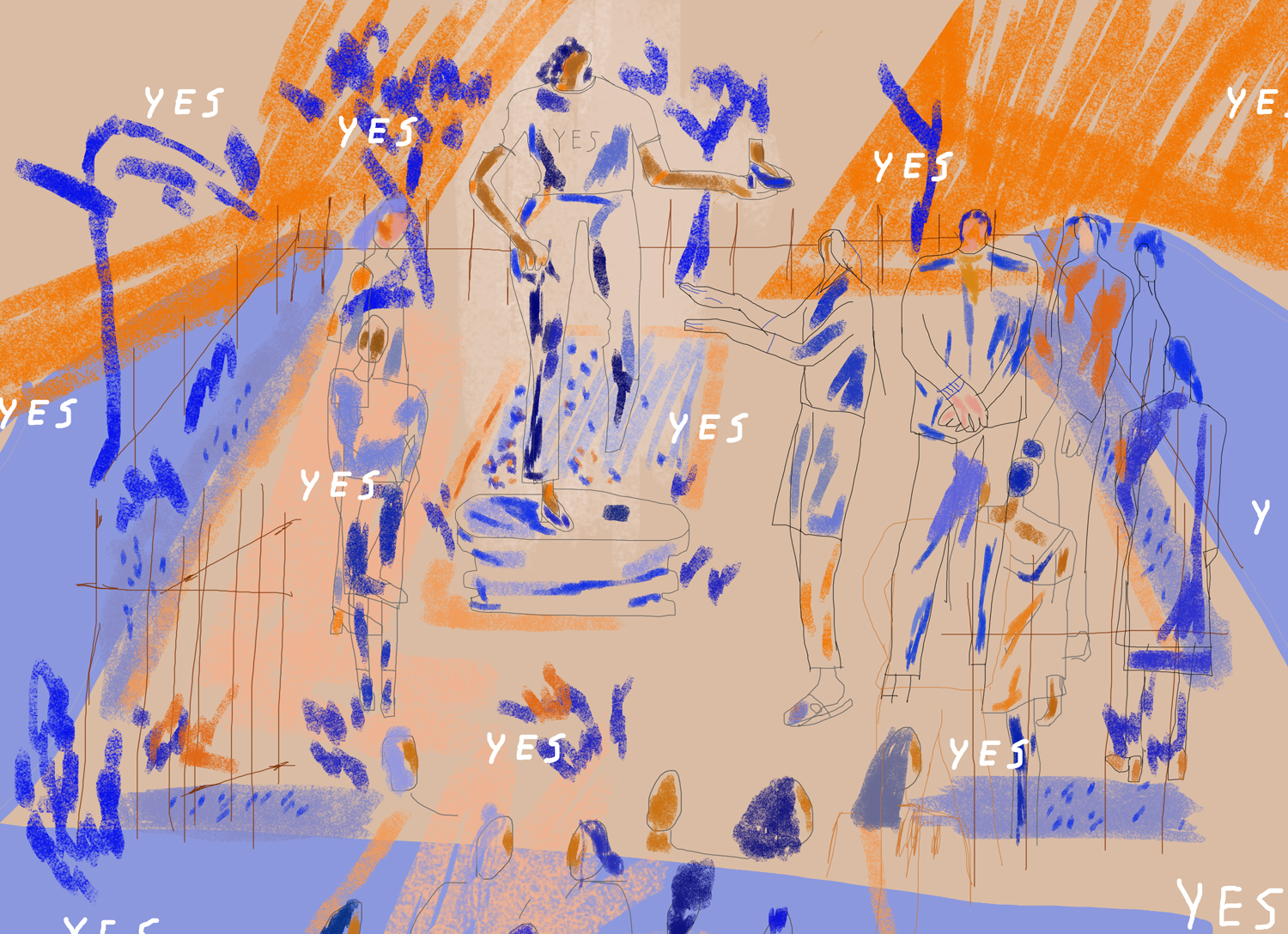
I’ve always tried to detach myself from the idea that endurance is what makes a black woman a black woman. That her suffering, the process of overcoming and becoming, and supporting others whilst she does so, is what defines her. But here I am at 22, an empath questioning my adequacy. Questioning why the immense resilience shown by my mother and grandmother, passed down from my ancestors, did not swiftly pass down onto me – so I too, can become a strong black African woman.
***
I’m an intuitive being in my natural state, an empath – I know. And sometimes I know too well. For a span of time, that was valued most about me, that sometimes I just knew what to say to a friend, how to act. It was something so innate and unruly, it painted a picture too well. Gifted, they said.
“We soak up the energies that surround us, imploring the universe to gift us with the power to heal. But where does the healer go when they are also in need of warmth and light?”
But the thing about being an empath is that you’re vulnerable to housing a fragmented soul. You crack because of self-neglect, of over thinking, of constantly validating everybody’s existence except your own. We soak up the energies that surround us, imploring the universe to gift us with the power to heal. But where does the healer go when they are also in need of warmth and light? I chose to seek refuge within. A monologue filled with questions asked and answered by myself, often with a tone of negativity and an unending urge to attend to something or someone else.
In the process of continuously lessening the importance of my feelings, I felt and felt and then imploded. A silent resignation, stood on the pedestal I was placed on. No one noticed. I remember losing a lot of weight and the people around me taking it lightly. They made jokes about how I needed to eat more, about how I shouldn’t jump off the cliff, with little awareness of how triggering it was. They didn’t know and I didn’t let them know.
Even now, I am so angry at myself for being so passive. For treating mental ill-health as if it was taboo, as if it directly translated as weakness. Throughout all the openness I encouraged during the conversations I had with the people I loved, why could I not just say what was on my own mind?
I kept on feeding people what they wanted to hear whilst salvaging what bit of self I had left. But my soul was frail. There was this fear embedded within me that I was too much. That I felt too much and thought too much and so would overwhelm anyone who tried to be there for me. That my pain and then the lack thereof was overstated, not worthy of recognition.
***
I am only unlearning now. I am forgiving myself for my past mistakes and learning to call myself out. I’m finding it difficult to reclaim my emotions without being burdened by them and letting go of anyone who feels that I am too much for them – too serious. No one ever warns you about the existential crisis you’re destined to experience as an empath – the conflicts of unconditional love and being too compliant – living an authentic life even though you have lived a great part of it trying to please everyone and everything, even toxicity.
“I think I’ve also unknowingly romanticised the strength shown by the black woman in my everyday life, who I now seek refuge in. I have put them on the very same pedestal I detested being on”
The process of changing and going back to who I was before the downfall of my mental health is also proving to be a challenge. Some of the things that defined me don’t exactly align with who I am today or who I want to be. And due to the confusion that this causes, I tend to get desperate. I yearn so much to be whole, to find meaning and fulfilment in my existence and to be authentic and non-wavering through it all.
I think I’ve romanticised the idea of my evolution. I think I’ve also unknowingly romanticised the strength shown by the black woman in my everyday life, who I now seek refuge in. I have put them on the very same pedestal I detested being on. The pedestal of assumption, of unending strength and the ability to mend and not need much mending. Have they healed yet? Have the scars of misogynoir and relentless sacrifice in the lovely disguise of loyalty disappeared? I have so much to learn.
Within this quest of introspection, I’m allowing myself to glorify my abundant ability to feel and reciprocate and to get moved by everything and anything – to despise this skill and to go back to relishing it – to get back to knowing but not fixating. Being an empath does not equate to fickleness. If anything it equates to resilience.
I am learning that there are different types of strength and different manifestations of it, and that neither should exclusively validate your worth. The strife experienced by a black woman is not pretty and must not be idealised. We have been continually forced to adapt to a position of being both the survivor and saviour but it is not our beginning and ever after. Our strength is not anyone’s to awe and define as the sole foundation of our character and our ability to follow through uncompromisingly. There is still so much within us.









